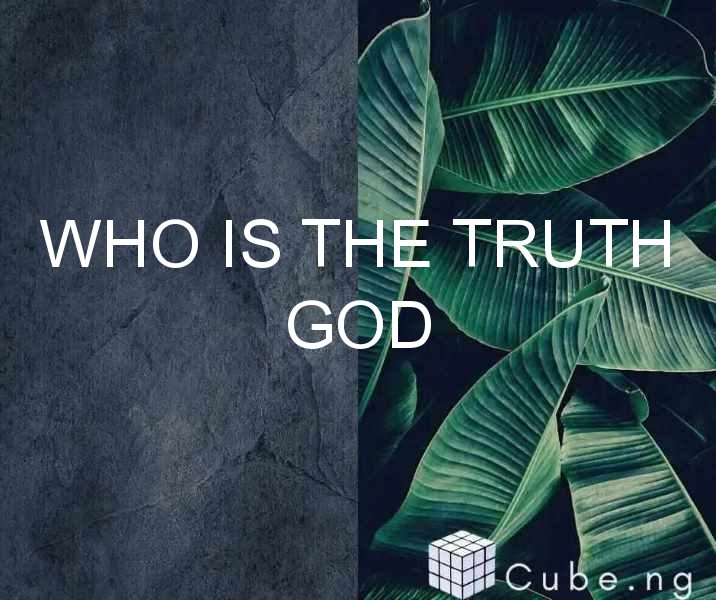Table of Contents
Who Is The Truth God
When it comes to religion, faith, and spirituality, the concept of God is central to many belief systems. But who is the true God? Is it the Christian God, the Muslim Allah, or the Hindu gods and goddesses? In this article, we will explore the concept of God and try to answer the question, "Who is the truth God?"
Defining God
Before we can delve into the question of who the true God is, we need to define what we mean by "God." The concept of God varies from religion to religion, and even within different sects of the same religion. In general, however, God is understood to be a supreme being, creator of the universe, and the source of all morality and goodness.
Monotheistic Religions
Monotheistic religions believe in one God, and many people believe that the true God is the one worshipped by these religions. The three major monotheistic religions are Judaism, Christianity, and Islam.
Judaism
In Judaism, God is referred to as Yahweh or Jehovah. The Jewish belief in God is based on the Torah, the first five books of the Hebrew Bible. God is seen as the creator of the universe, and the source of morality and justice. Jews believe that God chose them as his chosen people, and that they have a special covenant with him.
Christianity
In Christianity, God is referred to as the Father, Son, and Holy Spirit. Christians believe that Jesus is the Son of God, and that he died on the cross for the sins of humanity. God is seen as loving, merciful, and just. Christians believe that through faith in Jesus, they can be saved and have eternal life.
Islam
In Islam, God is referred to as Allah. Muslims believe in one God, who is all-powerful, merciful, and just. The Islamic belief in God is based on the Quran, which is considered to be the word of God as revealed to the prophet Muhammad. Muslims believe that by following the teachings of the Quran and the prophet Muhammad, they can achieve salvation and eternal life.
Polytheistic Religions
Polytheistic religions believe in multiple gods and goddesses. Some people believe that the true God is one of these gods, while others believe that the true God is a higher power that transcends all of the gods worshipped by these religions. The two most well-known polytheistic religions are Hinduism and ancient Greek religion.
Hinduism
In Hinduism, there are many gods and goddesses. The most well-known of these are Brahma, Vishnu, and Shiva. Hindus believe that these gods are different aspects of the same divine being, and that they have the power to create, preserve, and destroy the universe. Hindus believe in reincarnation, and they believe that by worshipping the gods and following the teachings of the Vedas, they can achieve enlightenment and liberation from the cycle of birth and death.
Ancient Greek Religion
In ancient Greek religion, there were many gods and goddesses, each with their own powers and responsibilities. The most well-known of these are Zeus, Poseidon, and Hades. The Greeks believed that the gods lived on Mount Olympus and that they controlled the world. The Greeks believed that by worshipping the gods and performing rituals, they could gain favor and protection from the gods.
Other Belief Systems
There are many other belief systems that have their own concepts of God or a higher power. Some people believe that the true God is one of these concepts, while others believe that the true God is something else entirely. Some of these belief systems include:
- Buddhism, which does not believe in a personal God but believes in a higher power or universal consciousness.
- Taoism, which believes in a natural balance between yin and yang and a divine force called the Tao.
- Sikhism, which believes in one God and the teachings of the ten gurus.
- Wicca, which believes in a goddess and god who represent the feminine and masculine energies of nature.
Conclusion
The question of who the true God is has been debated for centuries, and there is no easy answer. Different religions and belief systems have their own concepts of God or a higher power, and individuals may have their own personal beliefs as well. Ultimately, the true God may be something that is beyond our understanding or comprehension. What is most important is that we strive to live our lives with compassion, kindness, and love, and that we treat others with respect and dignity.




